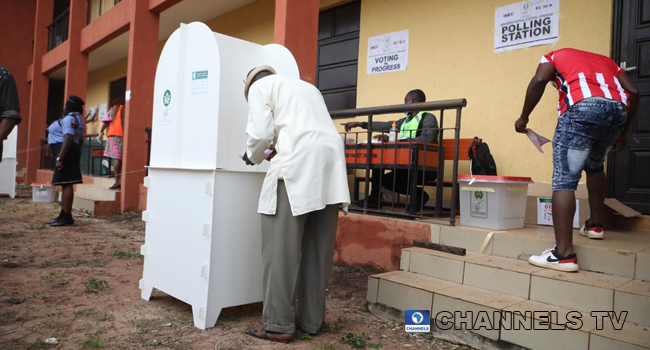INEC Unveils 56,872 More Polling Units Across Nigeria

The Independent National Electoral Commission (INEC) has announced the addition of 56,872 more polling units in various parts of the country.
INEC Chairman, Professor Mahmood Yakubu, who made the announcement on Wednesday at the commission’s headquarters in Abuja, noted that the move was in line with the resolve to expand voters’ access to polling units.
“After wide-ranging consultations with stakeholders and fieldwork by our officials, the 56,872 voting points and voting point settlements were converted and added to the existing 119,974 Polling Units.
“Consequently, the commission is glad to report that 25 years since the current polling units were created in 1996, the hard nut is finally and successfully cracked after several unsuccessful attempts. Nigeria now has 176,846 full-fledged polling units,” he said.
Professor Yakubu stated that the history of creating and expanding polling units in Nigeria has been long and complex.
He explained that their adequacy and accessibility, in terms of number and location across the country, were some of the challenges that had to be addressed in the interest of credible elections.
The INEC boss said before 2010, the electoral umpire operated on a round figure of approximately 120,000 polling units.
He added that a census undertaken by the commission before the 2011 general elections arrived at the precise figure of 119,973 polling units.
Professor Yakubu disclosed that INEC has also made efforts to relocate many polling units from inappropriate places to public buildings accessible to voters, polling agents, observers, and the media during elections.
He listed some of the locations to include private residences and properties, palaces of traditional rulers, and places of worship.
The INEC Chairman attributed the establishment of voting points and voting point settlements across the states and the Federal Capital Territory (FCT) to the several unsuccessful attempts to create additional polling units.
“The voting points were tied to the existing polling units and voting point settlements. The number of registered voters in a polling unit and the voting point settlement in the FCT, was used to determine their voting points, based on the upper and lower thresholds of 500 and 750 voters respectively,” he said.






